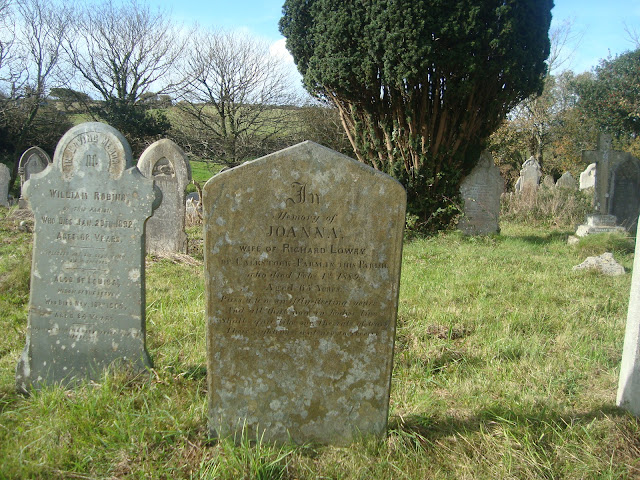2020 Dedh Dew Cans Pajar Ügens ha Nawnjek
De Sül, pempes warn ügens mis Hedra
Piw o pobel an blüw ma? O an blüwogyon ha’n plüwogesow stenoryon po tiogow, rych po bohojek? Piw a wrüg gordhya e’n eglos ma? Thera nebes chapelyow Methodist en ogas – en Kellestek, Melinjy ha Fenten Beran. Martesen bohosogyon a wordhyas ena. (Thew oll treylys dhe anedhow lebmyn.) Piw ew dres dhe’n co gen an meyn co ma? Nag ew an vohosogyon. Meyn co nag ew ras. Thera nei ow perthy co an düs ma der rêson aga henwyn ha manylyon war an meyn. Hemm ew aga anvarwoleth. Res ew dhen whiles en reknans pobel po sodhva recordys dhe gawas tüs erel. Otta tiogow.
Who were the people of this parish? Were the parishioners tin miners or farmers, rich or poor? Who worshipped in this church? There were several nearby Methodist chapels – in Callestick, Bolingey and Perranwell. Perhaps poor people worshipped there. (They are all converted to residences now.) Who are commemorated by these memorials? It’s not the poor people. Memorials are not cheap. We remember these people because of their names and details on the stones. This is their immortality. We must search in a census or a records office to get other people. Here are farmers.
Deg ger rag hedhyw: Ten words for today
anvarwoleth (f) immortality
drei dhe’n co to commemorate
gordhya to worship > a wordhyas
kevethek wealthy, powerful, well-off
manylyon details
plüw (f) parish
plüwogesow (plural) parishioners <plüwoges (f)
plüwogyon (plural) parishioners < plüwek (m)
stenoryon (plural) tin miner
tiogow (plural) farmers




No comments:
Post a Comment